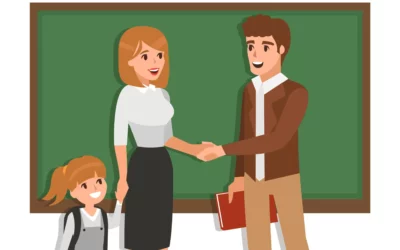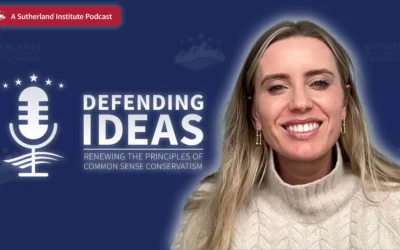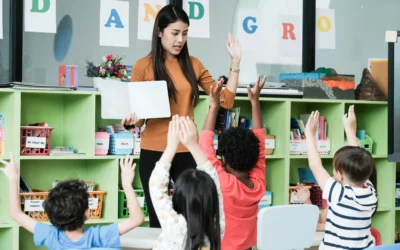
Written by Jonathan Ammons
July 7, 2022
Any views, thoughts, or opinions expressed by the author are his alone and do not necessarily reflect those of The Church of Jesus Christ of Latter-day Saints or any other organization or corporation with which he might be affiliated.
**********
“There can be no doubt that the education of the people in the United States contributes powerfully to the perpetuation of the democratic republic.”
—Alexis de Tocqueville—
As we approached Independence Day this year, I found myself once again contemplating the unique institutions bequeathed to us by the great minds and courageous actions of the founding generation. At the present, numerous challenges to these institutions are at the forefront of the public consciousness. But rather than focus on those serious and complex dilemmas, I find myself considering a remarkable but oft-overlooked institution left to us by our forebears. The institution of which I speak – that of self-education – is no less indispensable today than it was to the Founders themselves.
A thirst for knowledge, often simply to meet the challenges of the day, defined many of the early Americans. Historian Catherine Drinker Bowen describes the extraordinary lengths to which James Madison went to prepare for the Constitutional Convention in Philadelphia:
James Madison rode over to the Convention from New York, where he had been sitting in Congress. It was typical of Madison to arrive in Philadelphia eleven days early; this was a man who liked to be ready…
Of the entire delegation no one came better prepared intellectually. At his request Jefferson (eight years his senior) had sent books from Paris. Madison asked for ‘whatever may throw light on the general constitution and droit public of the several confederacies which have existed.’ The books arrived not by ones and twos but by the hundred: thirty-seven volumes of the new Encyclopédie Méthodique, books on political theory and the law of nations, histories, works by Burlamaqui, Voltaire, Diderot, Mably, Necker, d’Albon. There were biographies and memoirs, histories in sets of eleven volumes and such timely productions as Mirabeau on The Order of the Cincinnati…
Madison threw himself into a study of confederacies ancient and modern, wrote out a long essay comparing governments, with each analysis followed by a section of his own, entitled ‘Vices of the Political System of the United States.[i]
Madison’s “[l]ong study had given him a prophetic quality; in a letter to Washington as early as April he had outlined the most important points that were to be debated in the Convention.”[ii] Madison’s immersion into the history, theory, and philosophy surrounding democratic government played a profound role both in the ultimate contours of the Constitution, as well as in its successful navigation of the harrowing ratification process.
Though few of us will ever encounter a situation with such high stakes when the rigors of our self-education will be so dramatically put to the test, our personal commitment to lifelong learning remains critically important. Fortunately, our democratic heritage not only requires that we learn, but provides us with abundant opportunities to do so.
The Necessity of Self-Education
The first and most obvious reason for developing our minds is that the perpetuation of democracy demands it. “There can be no doubt,” said Tocqueville, “that the education of the people in the United States contributes powerfully to the perpetuation of the democratic republic.”[iii] For instance, the perpetual struggle to increase voter participation, in my opinion, is due in no small part to a lack of understanding about why such participation is important. And there are myriad other facets of civic engagement that continue to suffer due to a lack of understanding in the minds of American citizens.
Thomas Jefferson argued in favor of education, and the field of history in particular, as fundamental to a functioning democracy. Referring to the American citizenry, he wrote:
History by apprising them of the past will enable them to judge of the future; it will avail them of the experience of other times and other nations; it will qualify them as judges of the actions and designs of men; it will enable them to know ambition under every disguise it may assume; and knowing it, to defeat its views. … Every government degenerates when trusted to the rulers of the people alone. The people themselves therefore are its only safe depositories. And to render even them safe, their minds must be improved to a certain degree.[iv]
A second rationale for self-education is that our ongoing learning prepares us for public service. Serving in elected office, whether it be on a school board, on a city council, in a state legislature, or in any other position, requires at least some specialized knowledge to serve effectively. Understanding how government works, how it is structured, and the proper relationship between the government and the governed are all fundamental to succeeding in public service.
Of the role of elected leaders in America, Tocqueville wrote:
To educate democracy—if possible to revive its beliefs; to purify its mores; to regulate its impulses; to substitute, little by little, knowledge of affairs for inexperience and understanding of true interests for blind instinct; to adapt government to its time and place; to alter it to fit circumstances and individuals—this is the primary duty imposed on the leaders of society today.[v]
If leaders are responsible for educating democracy, how can they do so if they are not educated themselves? Such is the fundamental imperative of a functioning democracy, that its citizens pursue a course of learning that will prepare them to carry out both the duties of citizenship and the duties of leadership.
The Opportunities for Self-Education
Fortunately for all of us, the opportunities for self-education are more plentiful than at any time in the world’s history. The explosion of information technology over the last quarter century has brought more information to our fingertips, at an instant’s notice, than we could ever hope to digest over the course of many lifetimes. I want to focus, however, on a particular source of information that remains indispensable to any person committed to learning from the great minds of history. I am referring, of course, to libraries and the books contained therein.
Though not traditionally viewed as a democratic institution on par with, say, universal suffrage or representative government, libraries have nonetheless had a profound effect on the direction and development of American culture and society. In 1731, Benjamin Franklin began what was a rudimentary version of a library, desiring to improve his knowledge and his station by expanding the availability of the world’s accumulated knowledge to him. Of this moment Franklin writes:
About this Time … a Proposition was made by me, that since our Books were often referr’d to in our Disquisitions upon the Queries, it might be convenient to us to have them all together where we met, that upon Occasion they might be consulted; and By thus clubbing our Books to a common Library, we should, while we lik’d to keep them together, have each of us the Advantage of using the Books of all the other Members, which would be nearly as beneficial as if each owned the whole. It was lik’d and agreed to, & we fill’d one End of the Room with such Books as we could best spare.[vi]
This decision was a prelude to Franklin’s more formal pursuit of setting up a community library. Of this effort he later wrote:
And now I set foot on my first Project of a public Nature, that for a Subscription Library. … This was the Mother of all N American Subscription Libraries now so numerous. It is become a great thing itself, & continually increasing. –These Libraries have improv’d the general Conversation of the Americans, made the common Tradesmen & Farmers as intelligent as most Gentlemen from other Countries, and perhaps have contributed in some degree to the Stand so generally made throughout the Colonies in Defence of their Privileges.[vii]
I owe a personal debt to Franklin, as libraries have played a significant role in my own life, and more particularly during my formative years. Some of my earliest memories are of trips to the Sunnyvale (California) Public Library with my grandfather, who was a voracious and omnivorous reader and who had a significant influence on my own love of reading. (I also recall being impressed by a J. Seward Johnson bronze statue of a man eating a cheeseburger while reading a book – a unique combination of two of my life’s passions.)
Years later and hundreds of miles away, during grade school, I had the good fortune to stumble on the Robert Fagles translations of The Odyssey and The Iliad in my small town’s public library, which was my first encounter with classical literature and a presaging of my later undergraduate studies in Greek and Roman history, philosophy and literature.
Libraries generally – and books specifically – continue, in my estimation, to be the best way to engage with the written word. Despite the wonders of technological advancements and our access to vast amounts of information, time spent plumbing the deep wells of knowledge left to us by the great minds of the past are at risk of being replaced by time spent skimming the shallows of social media, the blogosphere, and other visually stimulating yet deeply unfulfilling sources of online content. Western author Louis L’Amour wrote, “If one really wants to learn, one has to decide what is important. Spending an evening on the town? Attending a ball game? Or learning something that can be with you your life long?”[viii]
Though our learning should include such subjects as will perpetuate our democracy, empower us as citizens, and prepare us for public service, our path of self-education should also bring us joy and improve our personal lives as well. L’Amour continues:
If I were asked what education should give, I would say it should offer breadth of view, ease of understanding, tolerance for others, and a background from which the mind can explore in any direction. Education should provide the tools for a widening and deepening of life, for increased appreciation of all one sees or experiences. It should equip a person to live life well, to understand what is happening about him, for to live life well one must live life with awareness.[ix]
A renewed commitment to improve our minds, to fill and refine them with the best knowledge available, is a fine way to celebrate the United States’ independence this year. In so doing, we celebrate not only our independence from tyranny, but our independence from ignorance. In so doing, we enrich our individual and collective pursuits of life, liberty, and happiness.
[i] Catherine Drinker Bowen, Miracle at Philadelphia, 13-14.
[ii] Ibid., 13.
[iii] Alexis de Tocqueville, Democracy in America, 351.
[iv] Thomas Jefferson, “Notes on the State of Virginia,” Thomas Jefferson: Writings, 274.
[v] Tocqueville, 7.
[vi] Benjamin Franklin, “The Autobiography,” Benjamin Franklin: Autobiography, Poor Richard, & Later Writings, 631.
[vii] Ibid., 632.
[viii] Louis L’Amour, Education of a Wandering Man, 2.
[ix] Ibid., 3-4.
More Insights
Read More
What would a parent-teacher ‘handshake’ look like in Utah?
This partnership does not allow either party to pass blame entirely to the other. There is no scapegoat, only opportunities for either party or both to work on the factors within their scope.
Restoring “The Soul of Civility” in America, with Alexandra Hudson
Most people would agree that civility seems to be in short supply in our current political environment. But in recent years, a growing chorus of voices across the political spectrum has been calling for a return to principles of civility in politics, as well as all areas of public life.
How Utah is supporting teachers
As Utah policymakers adapt to the needs of students, their policies have been proactive toward teachers’ needs as well.


